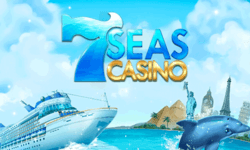Michigan online casinos, Poker, and and Sports Betting are now live. Many companies now hold and online gambling license from the Michigan Gaming Control Board (MGCB).
Neighbouring States: Illinois, Indiana, Minnesota (water border), Ohio, Wisconsin
Michigan Online Casinos and Real Money Slots
Regulation and legality of online gambling
Yes, online gambling is legal in Michigan. It is one of the few Midwest states that have made consistent efforts to implement as many forms of gambling as possible into the legislation. Most of the neighboring states have thriving iGaming markets that are stifled by the industry’s existence in a legal grey area.
In Michigan, attempts to legalize online gambling have been prominent since the 2000s. However, they were mostly thwarted by conflicting interests and different forms of lobbying. Everything changed on December 20, 2019, when House Bill No. 4311 was approved by Gov. Gretchen Whitmer, filed with the Secretary of State, and passed.
It was one of those rare, jack-of-all-trades bills that effectively encompassed almost every form of online gambling in Michigan. Even online poker was included, which almost all legislators somehow omit or consider an afterthought. With this addition, it seems that the poker scene is far from moribund in the Great Lakes State.
Interestingly, online poker and other types of internet wagering were deemed illegal from 1999 to 2000. For one year, the State Bill 562 made all internet poker rooms against the law, as they couldn’t abide by existing strict regulations. A more liberal act, Public Act 185, was passed, and it repealed the section about online gambling being illegal. It’s not clear where will Michigan go from here; obviously, the state government feels more liberal than some other legislation teams in US states, as it allows some forms of internet gambling. In latest developments, an online gambling bill, H 4926, has been submitted, including such details as potential online gambling tax rates and licensing fees.
Gambling history in Michigan
For much of the history of Michigan, the industry was leading the economy, and gambling, as its branch, was relatively quiet. The first popular gambling pastime in the Great Lakes State was horse racing. Records show that Michigan resident enjoyed horse races as far back as the Great Depression. Pari-mutuel pooled bets were legalized in 1933 by the Racing Act. Horse racing was joined by the Michigan lottery in 1972.
Every year, Michigan State Lottery contributes $1 million to help fund educational programs and treatments related to compulsive gambling. Also in 1972, charitable gambling was regulated, allowing bingo games, raffles, and charity game tickets to be licensed in Michigan.
Casino gambling was introduced a bit later - in 1993. It was when the State and the Saginaw Chippewa Indian Tribe signed the first compact. More compacts followed and by 1998 there were 11 of them signed. Tribal casinos are regulated by the National Indian Gaming Commission, whereas there are also several commercial casinos regulated by the Michigan Gaming Control Board. The Windsor Casino in Canadian territory directly across the river in Detroit was one of the factors that shaped the casino gambling laws in the Great Lakes State.
Land based casinos
People from Michigan, and occasional visitors, may enjoy a variety of gambling opportunities at some of the land-based gaming facilities scattered across the country, Apart from the racetracks, around two dozen establishments provide gambling services through tables games and video gaming machines; most of them are located on Native American soil. The two racetrack facilities include Hazel Park Raceway and Northville Downs.
Up until 1996, there were only tribal casinos in Michigan. That year, the voters approved an expansion of gambling to Detroit, and the bill allowed three big casinos to be built. These venues are Greektown Casino, MotorCity Casino and the MGM Grand. The MGM Grand Detroit has 4,100 gaming machines and over 140 tables. Greektown offers over 2,500 slot machines, while MotorCity Casino on Grand River Avenue has around 2,700 slot machines on its floor.
More notable venues include Soaring Eagle Casino and Resort, Four Winds Casino (New Buffalo) and FireKeepers Casino. The Soaring Eagle Casino houses over 3,300 gaming machines and 60 tables. In general, Michigan casinos offer slots, video poker machines, live poker games, blackjack, house-banked poker, craps and roulette.
Top Michigan Casino Slots and Games







